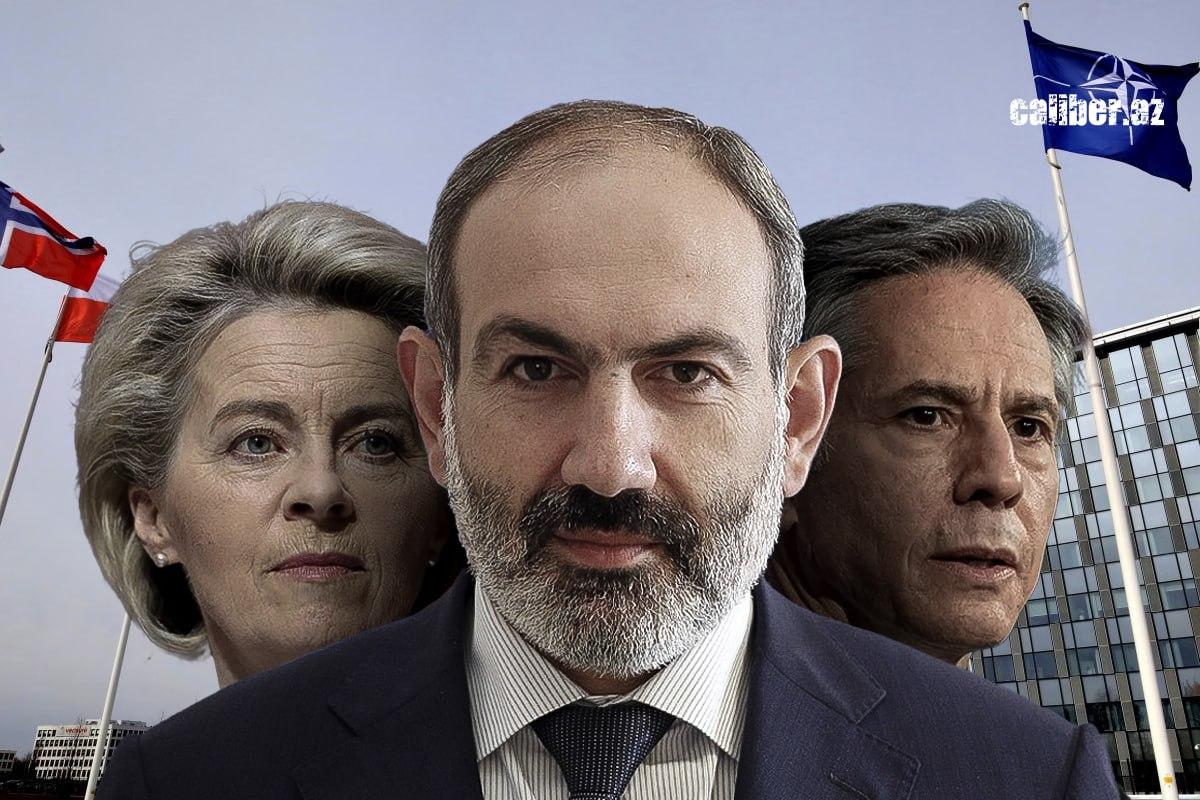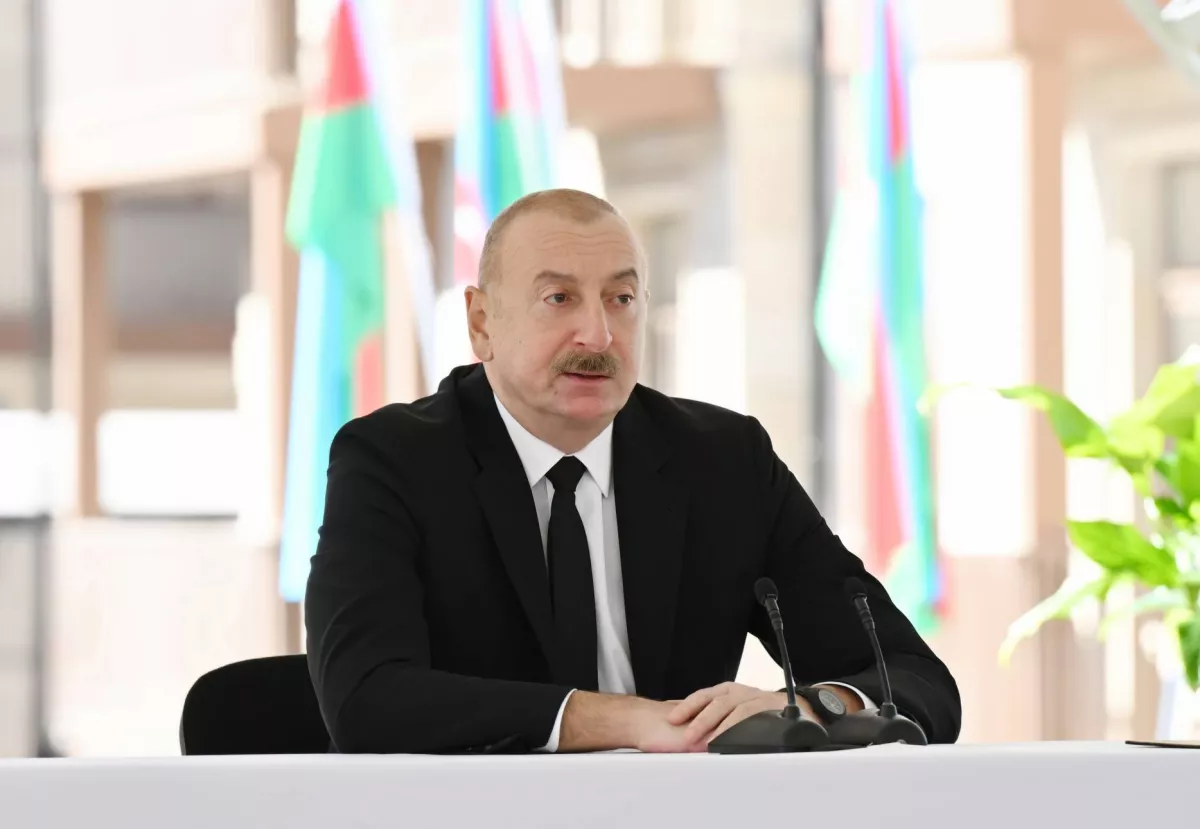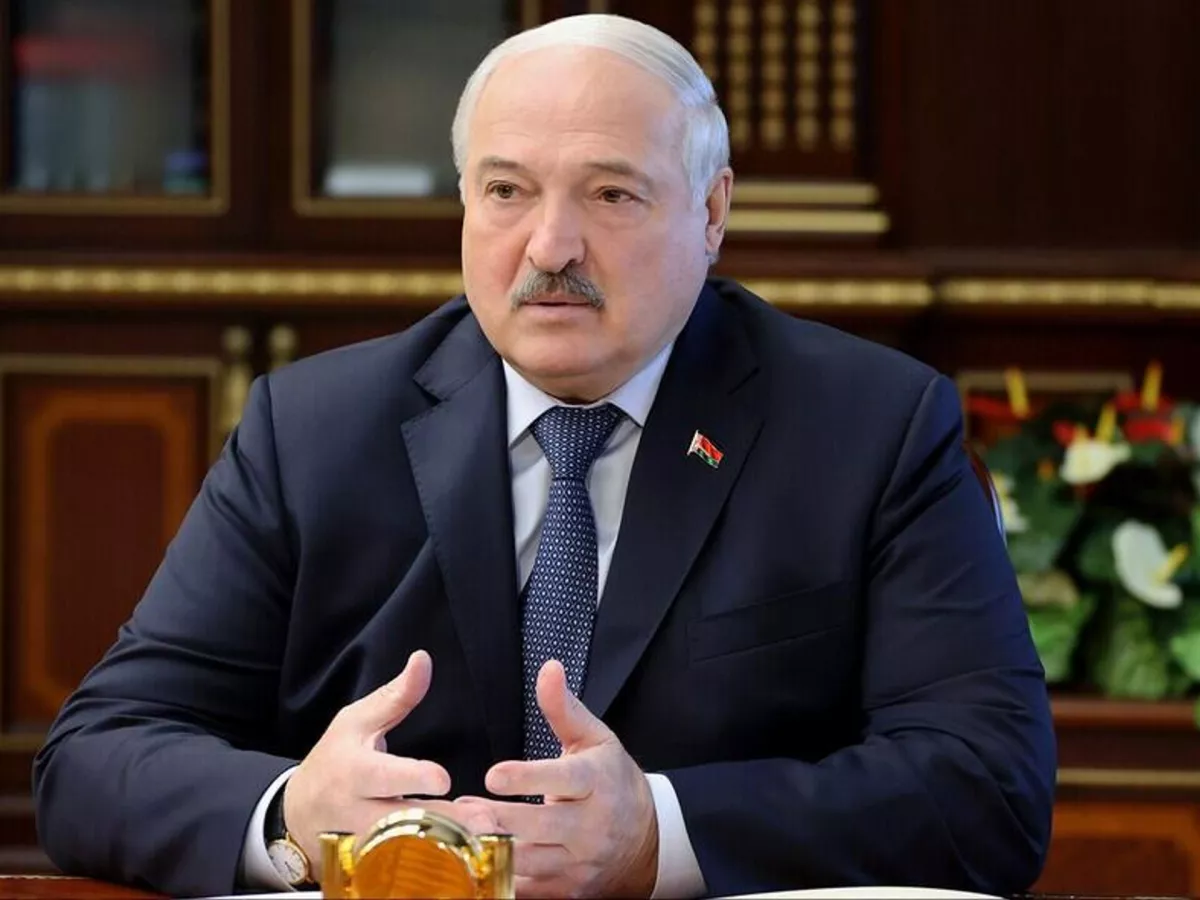Baku's strong response to Washington's pressure Upholding independence
The U.S. resumes discriminatory actions against Azerbaijan. Baku prepared to respond firmly to external pressure.
As previously reported, 60 members of the US Congress sent a letter to Secretary of State Antony Blinken demanding that Azerbaijan be "held accountable" on demagogic grounds. President of Azerbaijan Ilham Aliyev responded to this latest hostile act from the American side by stating, “Disgusting treatment that can't affect our will.”
Under the Watchful Eye of ANCA
The appeal calling on Washington to intensify its already unrestrained anti-Azerbaijani campaign was adopted just before the international environmental summit COP29 in Baku. It was initiated by New Jersey Democrat Frank Pallone and Massachusetts Democrat Ed Markey, but representatives from both the Democratic and Republican parties signed the appeal against Azerbaijan. Notably, Frank Pallone is known as the founder and co-chair of the Armenian Caucus in the US Congress. Members of this caucus receive support from the Armenian National Committee of America (ANCA). Assistance to congressmen and senators is not given out of goodwill; each member is monitored against 40 specific criteria. ANCA closely tracks everything—from legislative activities to the social media statements of each congressperson. Among the priorities of the congressmen encouraged by the Armenian nationalist committee are “holding Azerbaijan accountable, trips to Armenia and Nagorno-Karabakh, and providing financial and military assistance to Yerevan.”

It appears that, alongside the US State Department, the Armenian National Committee of America (ANCA) has also played a role in this appeal. ANCA Executive Director Aram Hamparian commented on the content of the appeal on October 3, the day it was submitted. He criticized world leaders for failing to take responsibility for the "Artsakh" situation, stating that they now must use COP29 in Baku as a platform for protests against Azerbaijan. Baku is being accused of all mortal sins in the appeal from the “American-Armenian” congress members.
But if we move past the routine accusations against Baku, what is the essence of the Armenian caucus's appeal in the U.S. Congress? "In connection with COP29, we urge the State Department to put pressure on President Ilham Aliyev and the government of Azerbaijan," say the effective lobbyists of the Armenian committee in the U.S. Congress. By pressure, they mean the imposition of sanctions against Azerbaijan. Furthermore, Aram Hamparian also demands that American demands be met in Azerbaijan—before COP29 begins.
It seems that the UN environmental summit in Baku is not viewed by Washington as a platform for signing agreements to save the planet. No, it appears that the U.S. State Department has decided to turn COP29 into a stage where the U.S. will actively promote its interests in the South Caucasus. Along with the usual criticisms, this time the statement also includes: "Azerbaijan is strengthening energy and security ties with Russia, colluding with Moscow’s hostile regime to circumvent international sanctions." The Pallone-Markey letter urges the U.S. administration to use COP29 as an opportunity to strengthen the strategic alliance between the U.S. and Armenia, including energy diversification for Armenia and reducing Russia’s influence in the region. It's likely that, in the realm of "clean energy," a U.S.-backed project to build a nuclear power plant in Armenia will be promoted.
The forced militarization of Armenia, directly supported by the U.S., France, and other countries, is being covered up by noble rhetoric: "Furthermore, we strongly urge the State Department to condemn Azerbaijan's harmful rhetoric that criticizes Armenia's right to self-defense."
It seems that one of the most important goals of this appeal is the global transit through the South Caucasus. The U.S. wants Armenia, its new vassal, to become a strategic hub on this route. "The State Department could use this opportunity to facilitate discussions on opening the border between Turkey and Armenia," states the Pallone-Markey letter. Back in April 2024, at a high-level meeting between the U.S., the EU, and Armenia, the Americans supported Yerevan’s adoption of the "Crossroads of the World" transport strategy. It is likely that they intend to further promote this strategy at COP29 as well.

The Pallone-Markey letter mentions that the South Caucasus region is not only characterized by complex diplomatic issues but also by "untapped potential." Its transit capabilities and strategic location seem to be part of this potential, which Washington is eyeing.
Interestingly, in Armenia itself, the "Crossroads of the World" project has received mixed reactions. For instance, even the former commander of Armenian occupation forces in Karabakh, Samvel Babayan, stated that rejecting the transit option proposed by Azerbaijan in favor of the "Crossroads of the World" initiative "leads the region to war."
Against this backdrop, the current appeal from pro-Armenian congressmen, just ahead of an important UN climate forum, is a blatant form of pressure on Azerbaijan to advance U.S. interests in the region.
Response from Baku
Baku swiftly issued a strong response to the latest U.S.-Armenian insinuations. On October 4, during a meeting with the residents of Jabrayil, President of Azerbaijan Ilham Aliyev stated: "Today is a day of mourning for anti-Azerbaijani forces. How could it be that without asking anyone’s permission, without fearing anyone, and without regard for anyone, Azerbaijan restored its rights? Through its own strength, through the dedication of its sons. They cannot forgive us for this. Today, America is imposing sanctions on Azerbaijan. And after that, they say: let's strengthen our friendship. What kind of friendship are they talking about?"

The leader of Azerbaijan paid special attention to the blatant hypocrisy of the West: "Armenia violated all norms and principles of international law, occupied about 20 per cent of our lands, carried out a policy of ethnic cleansing, committed the Khojaly genocide, and destroyed all our cities and villages. Has an official representative of any Western country ever criticized them for this? No."
In response to the statement by U.S.-Armenian congressmen, a group of deputies from the VII convocation of the Milli Majlis (Azerbaijan’s Parliament) sent a letter to Foreign Minister Jeyhun Bayramov. In it, they propose terminating the current agreements between Azerbaijan and the U.S., including the "Declaration on Future Military and Defense Relations Between Azerbaijan and the U.S." (1997) and the "Agreement on Equipment Procurement and Mutual Support Between the Ministry of Defense of Azerbaijan and the U.S. Department of Defense" (2013). "Why does the U.S., which has occupied various countries around the world under false pretences, consider Azerbaijan’s operation to liberate its territory from occupation and eradicate separatism as 'military aggression'?" the Azerbaijani deputies rightly question in their appeal.
Among other proposals, the deputies suggest halting the operations of the notoriously controversial U.S. Agency for International Development (USAID) and American non-governmental organizations (NGOs) in Azerbaijan.
Defending Independence
Today, in truly sovereign states, fewer and fewer people believe in the benevolent role of Western NGOs. Take Belarus, for example. For decades, the U.S.-funded "third sector" increased its presence in the country. While local grant recipients embezzled a fair share of the foreign funds they received, they still carried out their work in promoting foreign interests in Belarus. The tactics of NGOs are insidious: to begin with, grant-driven operatives gather young people eager to engage in noble causes. The pretext can be anything—national culture, ecology, education, history, or the fight for all things good against all things bad. They then seize on numerous issues that periodically arise in the community, labor, or any other sphere, particularly if the relevant officials are indifferent. And so, young idealist volunteers and concerned citizens are sent "into battle."

But the most frightening aspect is not this. Local problems are reduced to blanket condemnation of the national government, as the NGO nomenclature has been instilling pro-Western influence in Belarus for years. Openly or subtly whispering on each of their websites, seminars, or meetings that "everything is Lukashenko's fault." They suggest that all their problems, from greening the courtyard to personal incomes, will miraculously resolve as soon as "we overthrow the Father" and move towards the West. In 2020, these foreign agents managed to rally many gullible people onto the streets, nearly pushing Belarus to the brink of catastrophe. Many of those deceived by them saw their lives shattered.
Currently, all subversive pro-Western organizations in Belarus are banned, and the republic has managed to steer away from the brink of disaster. However, even among numerous foundations and "initiatives," the infamous USAID stands out. Numerous examples indicate that it essentially operates as a sort of intelligence agency, gathering information through its extensive "civilian" network, analyzing it, and presenting its conclusions to the U.S. government for further action. Funding for operations aimed at changing undesirable political regimes, expanding influence, or maintaining control over specific regions flows through the structures of the "U.S. Agency for International Development."
The primary "transgression" of any national government lies in pursuing a sovereign course that aligns with the interests of its own people and state. American imperialism, both in the past and present, has responded to this without any hesitation—by igniting internal conflicts, organizing coups, and carrying out armed interventions and wars. As we can see, the nature and actions of American imperialism have not changed even in the early 21st century...
Today, the countries whose leaders dare to pursue independent policies are still under the crosshairs of globalists. However, the leadership of Azerbaijan, Belarus, Hungary, China, Slovakia, and many other nations, especially in the awakening global South, is increasingly asserting their right to determine their own destinies…








